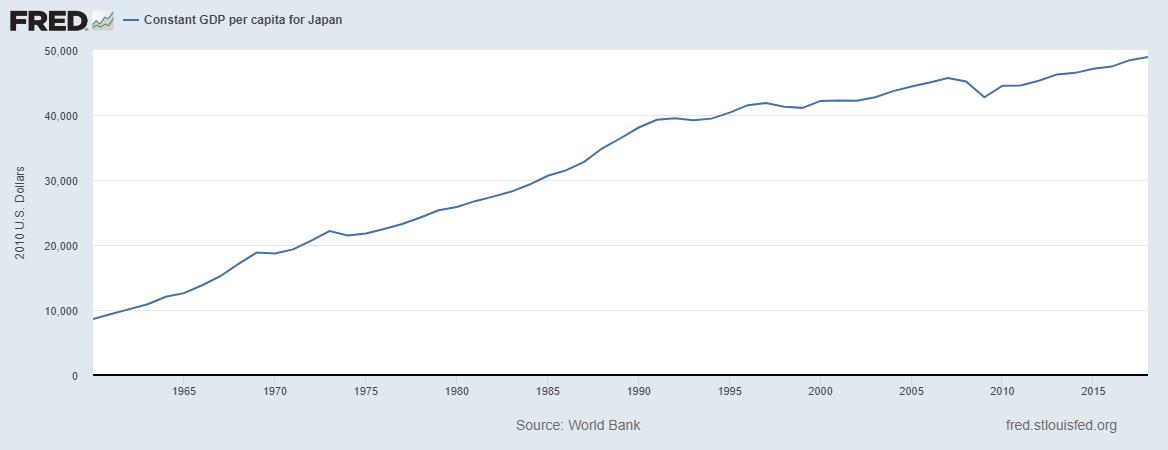So, just read @LHSummers piece on "Black Hole Monetary Economics." heisenbergreport.com/2019/08/22/lar…
It's a thought-provoking piece. Made me sit back and reflect a bit. Are these really the issues that should concern us? Or are we barking up the wrong tree?
It's a thought-provoking piece. Made me sit back and reflect a bit. Are these really the issues that should concern us? Or are we barking up the wrong tree?
Q being asked is whether central banks (CBs) can be relied for macroeconomic stabilization in economies that have "turned Japanese." The U.S. economy is only one recession away from this prospect, evidently. Europe is apparently already there.
But maybe turning Japanese is not so bad. Just ask @Noahpinion noahpinionblog.blogspot.com/2018/06/noah-s… Sure, RGDP growth has slowed since 1990. But so what? Material living standards are high. People are amazing, country is interesting and fun. 

This is not to say there aren't issues, of course. But do "slow" growth and zero interest rates constitute some of these issues? I don't think so. First, growth may be "slow" but it's occurring at elevated levels. And why is achieving high RGDP growth so important anyway?
People enjoy "growing" to be sure. But keep in mind that people would experience income growth for standard life-cycle reasons even in a zero growth economy. Wanting aggregate growth is like wanting to make sure our children can live in 3-garage homes instead of 2-garage homes.
But isn't aggregate growth necessary to ensure that the less fortunate share in a nation's bounty? Makes it easier, to be sure, but why should it be necessary? We are rich enough already, collectively, to make sure all can live comfortably.
But what about the aging population? Yes, what about it? Is someone prepared to lecture me on how awful it is that we are living longer than ever? Older generations have contributed to building the capital that makes possible the living standards that we all enjoy today.
Let them enjoy the fruits of their past labor (many continue to work anyway). Let's maintain and augment this capital stock (which includes the environment) for future generations. Maybe social security systems need to be re-calibrated. But this is (or should) not a big deal.
But how will monetary policy work to stabilize the business cycle in a Japan-like economy? It will work fine, except not through the CB and not through interest rate policy. In a Japan-like economy, the fiscal authority has all the fiscal space it needs.
Deflationary recessions can be met with tax cuts (including money transfers via "helicopter drops"), money/bond financed government spending, treasury purchases of private assets, etc. One possibility is to have the CB responsible for this type of fiscal policy.
As for the U.S., things are similarly looking good at the aggregate level. The issue is not with the level of income or its growth. There are many more pressing issues that can (and should) be solved even if per capita RGDP flat-lined forever. 

As for interest rate policy as a macrostabilization tool, can we all just agree that it's much over-rated? Maybe it works stabilizing "little" shocks that buffet the economy. But who cares about little shocks? We care about big shocks.
And to be fair, I think central bank LOLR operations are important macro stabilizers. But all major interventions are usually a coordinated affair anyway (between monetary and fiscal authorities).
So, the road ahead, in my view, is to make this coordinated effort a more explicit part of the macroeconomic policy stabilization toolkit.
• • •
Missing some Tweet in this thread? You can try to
force a refresh




